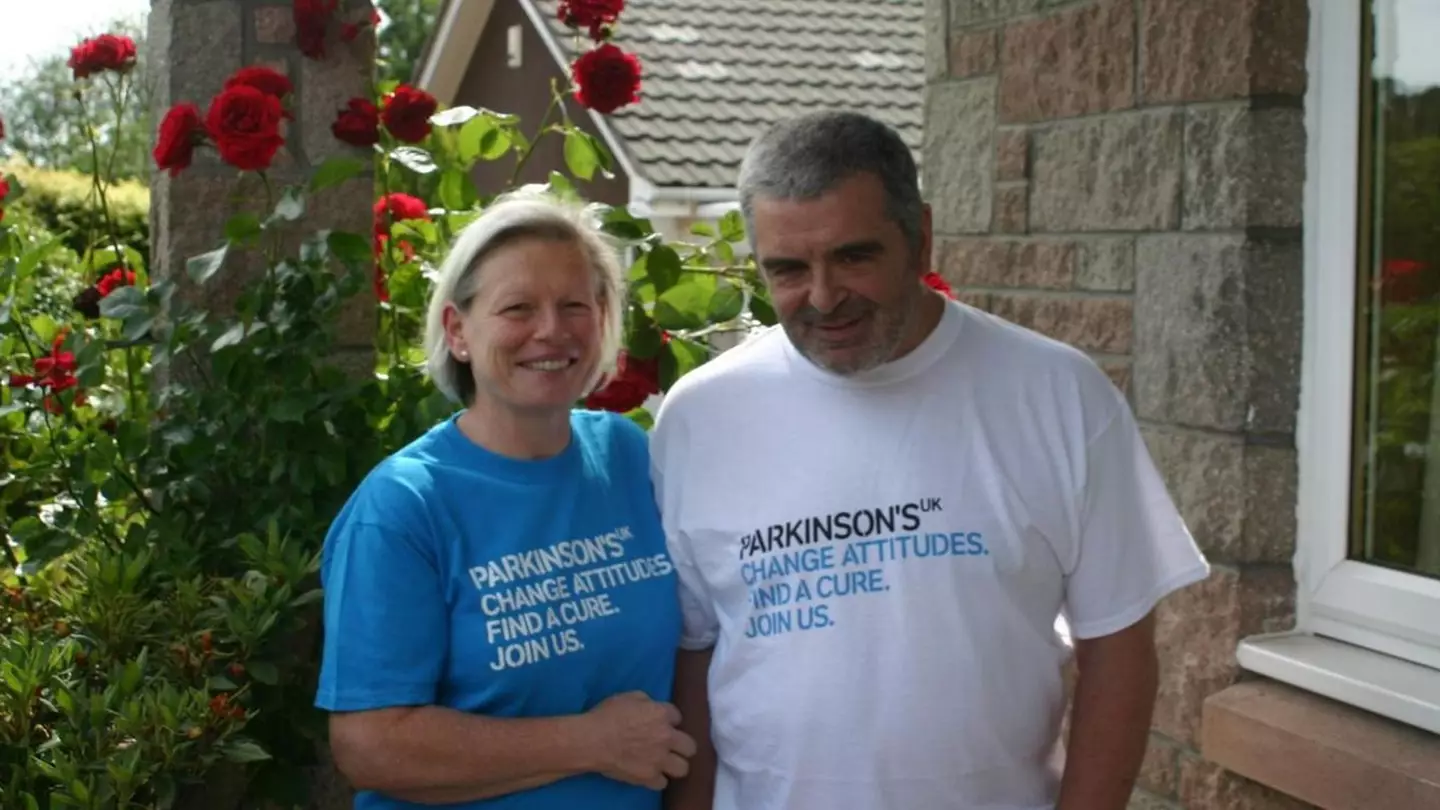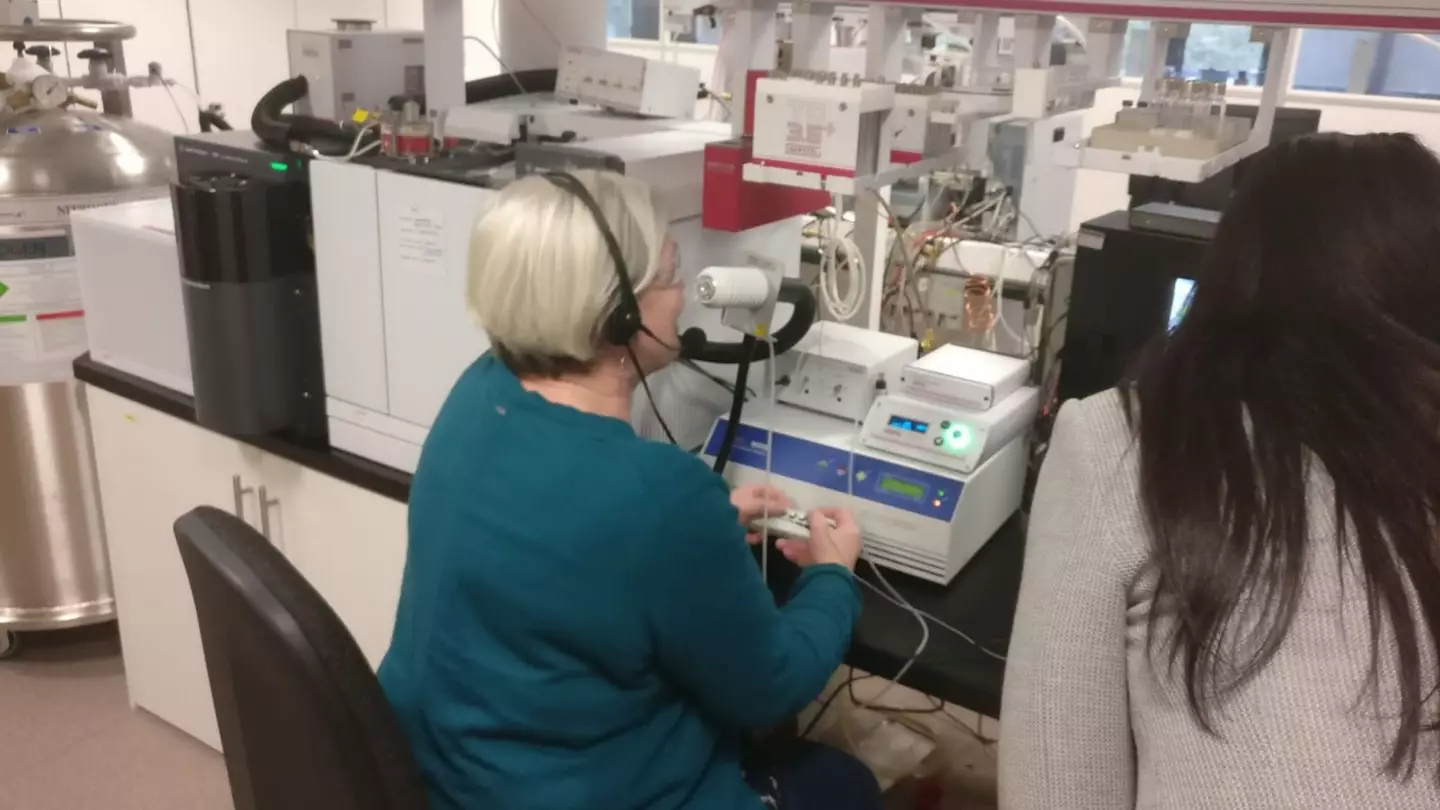
A woman has revealed what Parkinson's disease 'smells' like after claiming she can detect it on other people.
Joy Milne has an extremely rare condition known as hyperosmia, which is an incredibly sensitive sense of smell - a 'superpower' which enabled her to sniff out the disease in her late husband, Les.
According to Parkinson's UK, there are around 153,000 people who live with the disease in the UK.

Advert
The NHS describes Parkinson's, which is the fastest growing neurological condition in the world, as 'a condition in which parts of the brain become progressively damaged over many years'.
The main symptoms include; involuntary shaking of particular parts of the body and slow movement as well as stiff and inflexible muscles.
The life of 75-year-old former nurse, who hails from Scotland, changed massively after noticing a distinctive change to the odour of Les more than a decade before his diagnosis.
Speaking on The UK Tonight With Sarah-Jane Mee, she said Les' smell went through a 'very distinct change' at 29-years-old before he reached 31, where it had 'completely changed' (via Sky News).
Her concern led him to see a neurologist, who then diagnosed him with Parkinson's disease.
Speaking to The Telegraph, Ms Milne revealed the smell of Parkinson's was a 'musky' one, likening it to 'the smell [of the inside of someone’s coat as they were taking it off'.

When asked by Mee how it feels to walk past someone in public who may smell like they're carrying the condition, Ms Milne admitted: "It is very difficult, but I have signed a non-disclosure because it is unethical. It is and I can't do anything about that."
She continued: "I think, because it's a genetic thing in the female side of the family, my grandmother did warn me when she trained me, she did warn me not to use [it].
"She said I would find it very difficult unless I made the decision that I would go ahead and do it. And I have made that choice. I was a nurse, a carer for my mother-in-law and my husband with Parkinson's and really it was the right choice.
"I think it was the right choice."
After making the bombshell discovery, Ms Milne has begun collaborating with several researchers, including Professional Perdita Barran, who is a chemist at the University of Manchester.

In order to test her sense of smell, Ms Milne was given t-shirts to smell, with some being worn by a person with Parkinson's disease, and she was 'was 100% correct in smelling the T-shirts and diagnosing from a T-shirt whether someone had Parkinson's or not'.
Barran is now 'very close' to creating a noninvasive skin-swab test that could help diagnose Parkinson's years before symptoms appear, as well as monitor its progression.
"Not only is the test quick, simple and painless but it should also be extremely cost-effective because it uses existing technology that is already widely available," Barran said (via The New York Post), noting that she expects the test to undergo early clinical trials at Manchester’s Wythenshawe Hospital later this year.
Scientists believe that the 'Parkinson's' scent that Ms Milne can seemingly detect may be linked to a chemical change in skin oil, known as sebum, which is triggered by the disease.
Topics: Explained, Health, NHS, Real Life, Science, True Life, UK News, Skincare